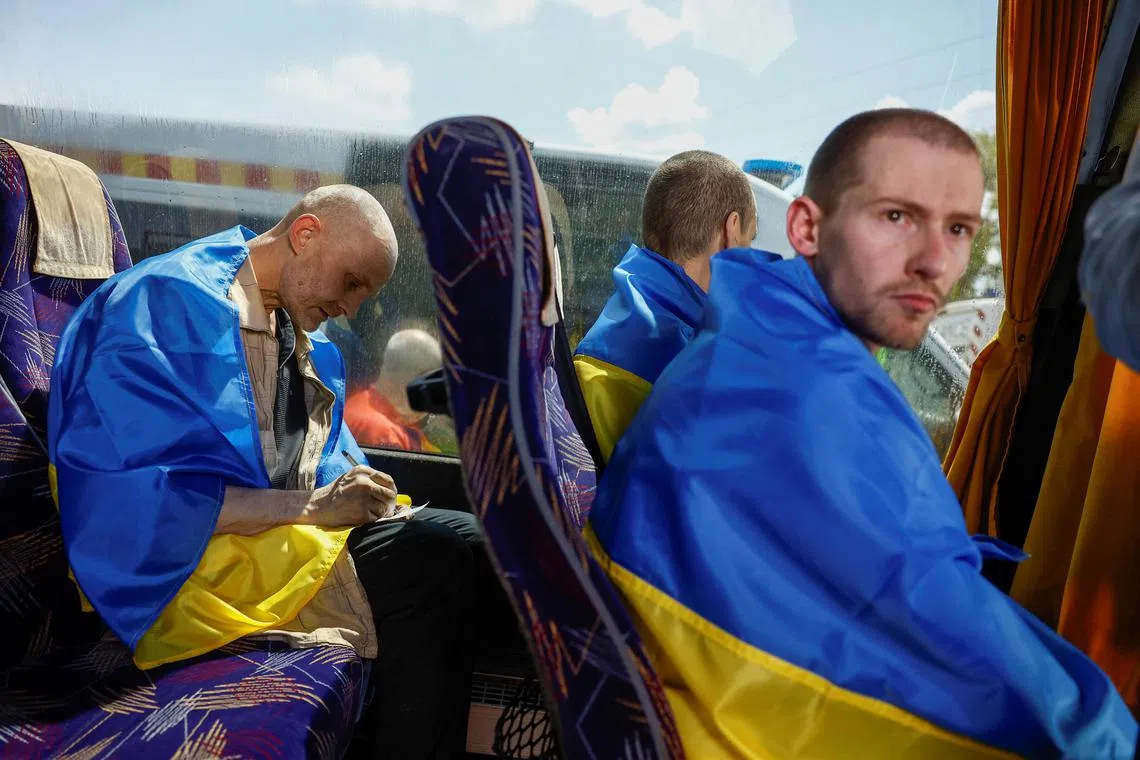Human rights officials from Ukraine, Russia met at POW swop for first time
Sign up now: Get ST's newsletters delivered to your inbox

Ukrainian prisoners of war returning home during an earlier swop in May 2024.
PHOTO: REUTERS
KYIV - Representatives of Russia’s and Ukraine’s human rights offices held a meeting for the first time during an exchange of prisoners of war (POWs) on June 25, Kyiv said.
The two countries each released 90 captured soldiers
But it was the first time Russia had agreed to hold a direct meeting between human rights representatives during the exchange, Ukraine’s human rights commissioner Dmytro Lubinets told AFP in a statement.
“This was another initiative of Ukraine, to which the Russian side agreed for the first time,” he said.
Representatives of both sides recorded the condition of the POWs being returned to monitor for possible human rights violations while in captivity, he said.
Russia’s human rights commissioner Tatyana Moskalkova also confirmed that a meeting between representatives of the two sides took place.
She said they had “exchanged information on possible options for the mutual return of civilians” currently being held.
More than two years after Russia invaded Ukraine, public diplomatic contacts between the two sides are rare.
Kyiv said Ukrainian POWs complained of being kept in poor conditions while in Russian captivity.
Mr Lubinets said the Russian side took note of their complaints, and hoped Moscow would “make every effort to ensure the conditions of detention of prisoners of war improve”.
The United Nations Human Rights Monitoring Mission in Ukraine said on June 26 it had recorded cases of Ukrainian soldiers being “tortured” while in Russian captivity.
It said in a report that it had interviewed more than 600 freed Ukrainian POWs, including some who had been released in an exchange on May 31.
“Consistent with previous findings, every single interviewee from this recent exchange has given accounts of torture, from brutal beatings to prolonged stress positions, to electric shocks on genitals and to dog attacks,” it said.
“Many interviewees described feeling constantly hungry in captivity and being deprived of proper medical care for prolonged periods,” it added. AFP


